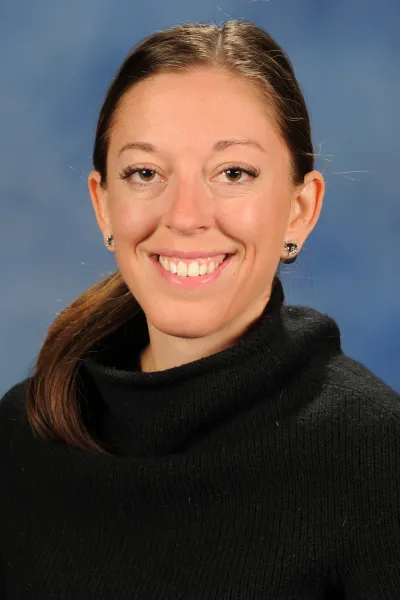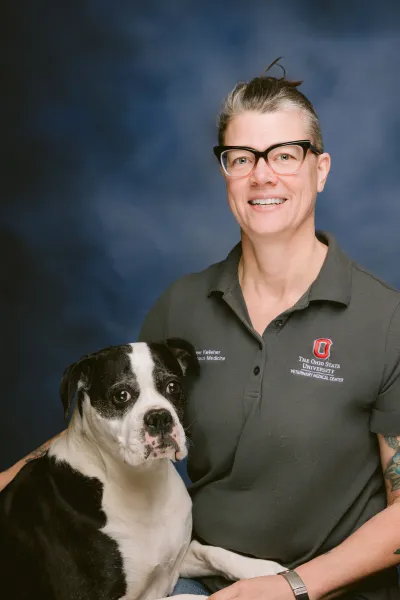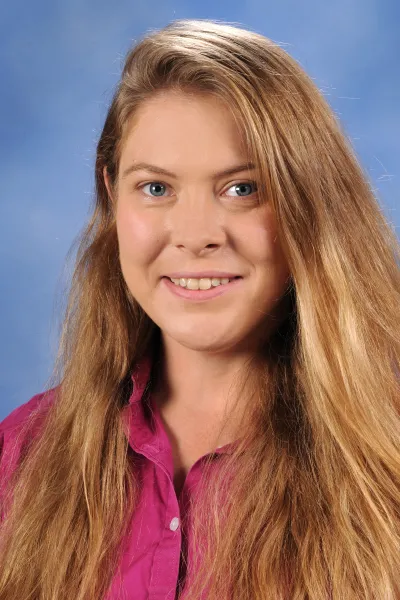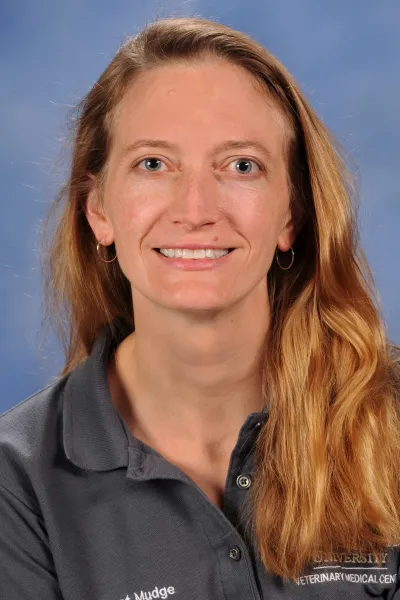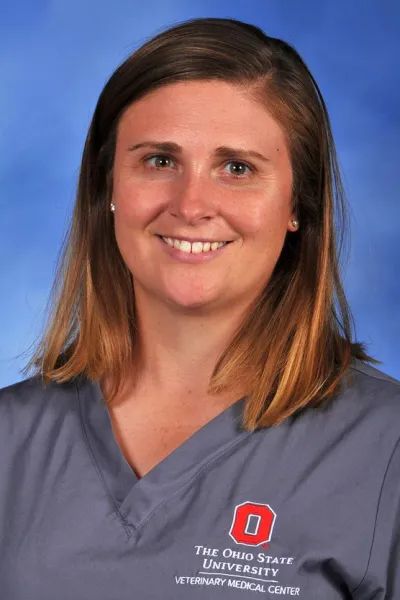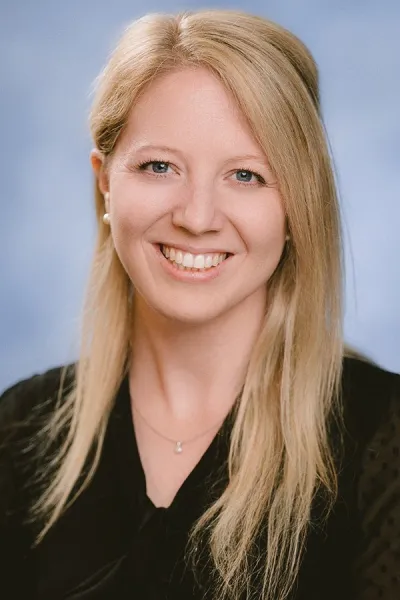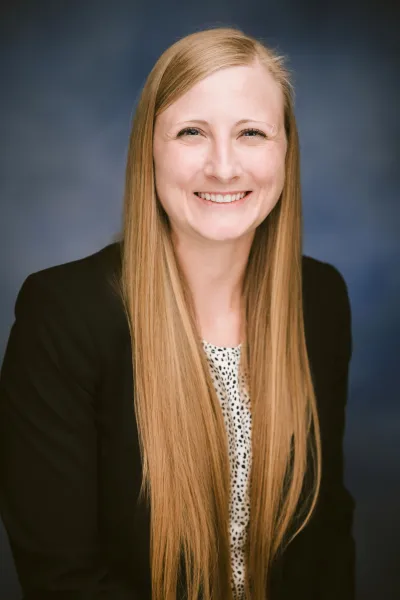Equine Surgery Residency
Additional Residency Resources learn more about our veterinary health system
Resident Objectives
- The primary goal of our training program is to encourage and assist our residents in becoming highly skilled and expert surgical clinicians.
- A strong secondary goal is to qualify for examination by the American College of Veterinary Surgeons (ACVS) and successfully complete the ACVS Certification Examination, including pursuing research to achieve authorship on a publication as required for ACVS credentialing.
- Concomitant goals include preparing for future career aims including teaching, research, or clinical practice.
- The resident has the option but is not required to attain the Master of Science degree in a specific area of research endeavor.
- The resident is encouraged to present their research at an internationally recognized symposium such as the ACVS Surgical Summit. Further CE opportunities such as the AO Fracture Fixation Course, Laparoscopy Course, Advanced Arthroscopy Course, and Upper Airway Course can be pursued if the resident is interested and the surgery service schedule allows.
Prerequisites and Applications
- All potential residents must meet the minimum requirements and qualifications (see Residency Program Handbook)
- Applicants must be either U.S. citizens or permanent residents of the U.S. the Ohio State University cannot sponsor or process F, J, or H-1B visa applications for resident positions. We also cannot accept TN visas. Successful applicants must be available to report to The Ohio State University Department of Veterinary Clinical Sciences no later than the scheduled beginning of the program.
- Applicants must be graduates of an AVMA-recognized College or School of Veterinary Medicine and have completed a one-year rotating internship or acceptable equivalent clinical experience.
- All requirements must be met to hold and maintain a limited license to practice Veterinary medicine in the State of Ohio – click here for information on licensure requirements.
- For residents who choose to enroll in an optional Master of Science degree program, the current admission requirements include:
- a minimum 3.0 GPA for all undergraduate coursework
- a minimum 3.0 GPA for professional (veterinary degree) studies
- a minimum 3.3 GPA for all graduate coursework
Employment and Benefits
For a full list of benefits, see the Residency Program Handbook
- Salary
- Health insurance
- Travel allowance for continuing education
- Personal + Professional days leave (from policy)
- Licensing
- Tuition Assistance
Orientation
During the first week of the residency program, all incoming residents participate in a comprehensive orientation program (see Residency Program Handbook) to introduce them to the department, college and university, complete necessary documentation, and to facilitate integration into our program and activities.
Advisors and Mentoring
Clinic advisor
- A residency clinical advisor must be selected by the resident after consultation with faculty within the first 3 months and should be a resource for all communication on service rotation issues.
- The residency program director (Dr Gardner) will serve as the temporary academic advisor to assist the resident in selection of a permanent research advisor. A graduate/research advisor must be selected within the first 3 months and should be a resource for graduate course selection, graduate committee selection, and a research project. We recommend different advisors for research and clinical matters if the resident chooses to pursue a Master’s degree..
- The residency program director (Dr. Gardner) coordinates resident affairs, orientations and complaints and is the section's representative on the Post Professional Education Committee (PPEC).
Thesis committee (If applicable)
- Once the specific area of research is selected, an advisory committee will be formed to provide advice on development, performance and completion of a project. Typically, the advisory committee also serves as the examination committee for the thesis defense, and consists of at least 3 graduate faculty members.
Mentoring
- Patient management is conducted with the guidance and collaboration of senior faculty.
Clinical Service Responsibilities
- Program rotations are designed to ensure development of clinical competence in a broad range of specialties. The residents schedule will be made with research and clinical advisors to 1) guarantee adequate clinic staffing, 2) expedite completion of the graduate program if a Master’s is pursued, and 3) to accommodate residents off clinic learning experiences. (See suggested time table in Appendix 1).
- Clinical rotations facilitate development of clinical proficiency, clinical skills, and knowledge of surgery through exposure to a wide variety of cases at all levels of complexity.
- Residents rotate among the clinical services within the section of Equine Surgery, research, and designated ACVS specialty rotations. Specialty rotations include 2 weeks each of anesthesia, radiology, medicine or critical care, and clinical and anatomic pathology. Elective rotations through other areas such as food animal surgery, neurology, or ophthalmology may be arranged during the 3-year program after discussion with the resident’s clinical advisor.
- All residents participate with the emergency clinician in operation of an emergency service on a rotating basis on evenings, weekends, and holidays.
- The residents on each service will be responsible for the day-to-day care of the patients on the service under the guidance of the senior clinician, which is often an ACVS diplomate and therefore the ACVS case supervisor. The resident will also participate in clinical teaching as well as preclinical veterinary student laboratories.
- Equine surgery service rotation will be scheduled to accomplish the required 110 weeks of surgical service required by ACVS with an average of 37-39 surgery clinical rotations per year with the other weeks per year used for research, Phase I boards preparation and exam writing, vacation, or specialty rotations.
- Vacation time is 10 working days per year and must be requested 30 days in advance. Vacation must be taken during the “off service” quarter and requires clinical advisor, research advisor and program director approval and a signed leave slip. A conflict of the time requested with hospital needs may result in denial of the request.
- Residents will be scheduled for emergency duty during their off-clinics blocks.
Teaching Responsibilities
- Teaching responsibilities include clinical teaching of clinical and preclinical veterinary students.
- Residents also participate in teaching technical skills to preclinical veterinary students during laboratories.
- Seminar Requirement: The resident must present a minimum of 6 different seminars during the program. Seminars may not include multiple presentations of the same topic or lecture. These seminars must be documented in the Resident Training Log.
Educational Opportunities
- Equine Research Group: A required monthly equine research seminar will enrich research exposure.
- Other conferences and journal clubs are scheduled to complete the educational opportunities required by ACVS for credentialing.
- A comprehensive collection of graduate level courses in surgery and related fields provides residents with relevant course material for partial fulfillment of the MSc degree requirements and preparation for surgery if an advanced degree is elected:
- Each resident will take for credit surgery seminar and advanced veterinary surgical sciences courses to satisfy MSc requirements.
- Each resident is required to successfully complete (grade B or better) 2 credits of graduate level statistics.
- Continuing education short courses, including the AO basic and advanced courses on internal fixation of fractures and the Upper Airway course are attended by residents at the discretion of the surgical service.
- Other off-campus CE activities can be requested and are subject to section approval.
Research and Scholarly Activity
- Residents pursuing an advanced degree as graduate students must fulfill the requirements for a Masters’ of Science Degree.
- A research project is required to fulfill ACVS research requirements regardless of graduate program status.
- Each resident will have a “Research Advisor” and the resident will be responsible for planning, obtaining funding for, and completing a project and publishing the results in a refereed journal.
- Each resident must submit and gain acceptance at least one scholarly paper to a refereed journal prior to completion of the residency program to fulfill ACVS requirements.
- Each resident is encouraged to present at least one formal paper at a state or national veterinary meeting or to the equine faculty prior to completion of their program. CE monies may go toward attendance.
- Residents in the graduate program are expected to prepare and submit their research for Master’s defense.
Evaluations
- Biannual written review by the equine section and review of performance in Graduate School. Program continuation is dependent on successful reviews
- The biannual review is distributed to the Faculty Advisors (Clinical and Graduate or Research).
Specialty College Requirements
- Information about registration and the General Information Guidelines of ACVS can be found at http://www.acvs.org/ID=4248/TYPE=870/ACVS_Residency_Guidelines_07-08.pdf
- Become familiar with candidate requirements for ACVS and with the General Information Guidelines of ACVS (consult http://www.acvs.org/ID=4248/TYPE=870/ACVS_Residency_Guidelines_07-08.pdf on the internet)
Expectations
Clinical Service
- Senior clinicians will provide ongoing teaching of the resident during daily clinical service including hands-on clinical skills training and mentoring in surgical training, research and teaching.
- Residents are expected to behave with exemplary professional and ethical values. Unprofessional interactions with staff, students, or clinicians will not be tolerated and may result in loss of residency. There is an expectation that people will be treated with respect and courtesy.
- Residents are expected to have excellent patient care and compassion. A base level of knowledge is required.
Appendices
Appendix 1 - Outline of goals and expectations
This schedule is only an example and each individual schedule will be different. Schedules are created by the resident program director and may only be changed with approval of both the clinical and research advisors.
| YEAR ONE | |
|---|---|
| Summer/Fall |
|
| Winter/Spring |
|
| YEAR TWO | |
| Summer/Fall |
|
| Winter/Spring |
|
| Year Three | |
| Summer/Fall |
|
| Winter/Spring |
|
Chief Resident: During the third year, the resident may be assigned to run his/her own service periodically with supervision by senior faculty. This privilege will be extended only if senior faculty feel the resident is competent to independently perform these duties. The resident will be responsible for the hospital service with faculty members being available for advice. Attendance of service rounds with a senior faculty member is mandatory. The resident must consult with the assigned back-up clinician on every case- elective and emergency to ensure the highest standard of patient care.
Appendix 2 - Weekend Case Transfer
Cases taken on emergency will be kept by the admitting clinicians until the following Monday when they may be transferred to the appropriate service.
Responsibilities of the primary transferring clinician:
1. To personally write the history and physical exam findings, as well as differential diagnosis and probable diagnosis in the chart before transfer.
2. To attend rounds Monday morning and personally talk to the next primary clinician about the case.
3. To record in the chart all communication with the client and referring vet including if no communication was made.
4. To record in the chart the price quote given to the client.
Updated 8/31/22
Contact Us
For general inquiries, please contact the VCS Education Program Coordinator:
Chelsea Souder
VCS Education Program Coordinator
Phone: 614-688-0332
Email: Souder.60@osu.edu
